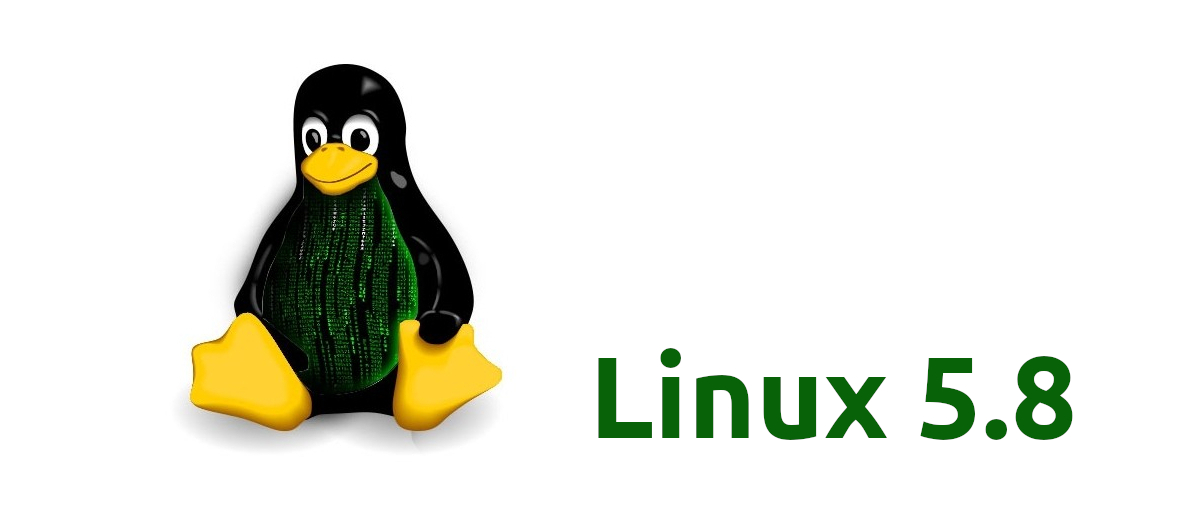
The roller coaster whose attraction is called Linux 5.8 It has returned to the starting point, that is, it has finished. There were many ups and downs, many doubts that made Linus Torvalds, the main developer of the Linux kernel, think that it would take an eighth RC, but it has not been like that and a few hours ago launched the stable version of a kernel that will come with very important news.
And regarding the latter, below you have a list of news that have come with Linux 5.8, one that we borrow from Michael Larabel, who is in charge of examining all the changes, proposals and conversations about the Linux kernel. Among them, a power driver for AMD stands out, but it also ensures that have modified up to 20% of the code.
Linux 5.8 Highlights
- Graphics
- Qualcomm Adreno 405/640/650 open source support.
- Support for AMDGPU TMZ has been added with reliable memory zones for encrypted video memory.
- Support for Intel Tiger Lake SAGV and other Gen12 graphics updates.
- Radeon Navi / GFX10 soft recovery support.
- The Radeon driver now handles critical thermal faults better as well.
- P2P / DMA buffer support between GPUs.
- Other updates, such as Lima runtime power management or Nouveau support for NVIDIA format modifiers.
- Processors
- The AMD power controller was merged to finally expose the Zen / Zen2 power sensors on Linux.
- AMD Ryzen 4000 Renoir temperature and EDAC support.
- Nested AMD live migration with KVM is now supported.
- Loongson 3 CPU support for KVM virtualization.
- Spectrum mitigation fixes are also now carried over to the stable series.
- Improves compatibility with the CPPC CPUFreq driver.
- PCIe NTB support for Ice Lake Xeon servers.
- Support for RISC-V Kendryte K210 SoC has been completed.
- New ARM SoC and platform support.
- Initial support for booting POWER10 processors.
- AMD Zen / Zen2 RAPL support for runtime average power limiting.
- Intel TPAUSE optimizes delay power for Tremont and newer cores.
- Hardened ARM 64-bit security with support for Branch Target Identification (BTI) and shadow call stack.
- The XSAVES monitor indicates support, memory bandwidth monitoring counters, and other x86 (x86_64) updates.
- Storage and File Systems
- A block device backend for Pstore when saving emergency / panic messages to disk.
- ERASE / Discard / TRIM support for all MMC hosts instead of being previously enabled.
- F2FS LZO-RLE compression support has been added for this flash-optimized file system.
- Improvements to the Microsoft exFAT driver.
- Support to emulate MLC NAND flash memory as SLC.
- A performance optimization for Xen 9pfs.
- SMB3 performance works for large I / O.
- Fixes for EXT4.
- Improved DAX support for direct access to persistent memory storage.
- Various Btrfs improvements.
- Other hardware
- Habana Labs Gaudi support for this AI inference accelerator.
- Intel Tiger Lake Thunderbolt support has been added, as well as ComboPHY support for Intel SoC Gateways.
- Support for Thunderbolt on non-x86 systems.
- The potential for significant power savings for motherboards with PCIe to PCI / PCI-X bridges.
- Peer-to-peer DMA for AMD Raven and Renoir.
- AMD Renoir ACP audio support.
- Cable testing infrastructure in Linux networking code, although initially limited to selected hardware / drivers.
- Intel Atom Camera Driver Restore (AtomISP).
- Support for swapping Fn and Ctrl keys on Apple keyboards.
- Numerous power management updates.
- AMD SPI driver driver merged.
- General improvements
- Jitter RNG improvements and ARM CryptoCell CCTRNG controller landing. AMD PSP SEV-ES support is also part of the encryption updates.
- The Kernel Concurrency Sanitizer has been merged with KCSAN to help detect race conditions in the kernel and has already been used to discover dozens of actual errors.
- Staging and IIO updates.
- Developer optimizations.
- A general notification queue initially wired to notify key / fob changes.
- SELinux optimizations.
- Modernization enhancements for Procfs with now support for private procfs instances.
- A new initrdmem = option which, among other use cases, can be used by replacing the Intel ME space with an initrd image in the saved flash area.
Now available from your tarball
Linux 5.8 is already available, but users interested in installing it will have to do it manually from its "tarball", available at this link, or using tools like Greatness, where if it has not appeared, it will do so in the next few hours. On the other hand, to say that in all probability if we look at the calendar, Linux 5.8 will be the kernel version that Ubuntu 20.10 Groovy Gorilla will use.